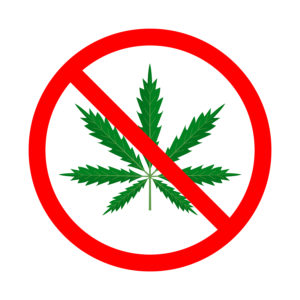
While this is good news, the federal government continues to be aggressive in fighting the war on drugs, and continues to impose harsh mandatory minimum sentences on any defendants with any connection to controlled substances, even in situations where involvement in the drug trade is minimal. At LV Criminal Defense, we provide legal representation to defendants facing either state or federal drug crime charges. We know how to help you defend yourself from prosecution and will help you to develop an effective legal strategy aimed at limiting or avoiding penalties for drug crimes.
DEA Told to Stop Harassing Marijuana Dispensaries
The U.S. Congress last year voted to provide protection to those who cultivate, distribute, and possess medical marijuana in states where cannabis products are legal. An amendment called the Rohrabacher-Farr Amendment was passed as part of the federal spending bill. The amendment mandated the Justice Department stop using any federal funds to “prevent such States from implementing their own State laws that authorize the use, distribution, possession, or cultivation of medical marijuana.”
The Amendment appeared to be a straightforward attempt to stop prosecutions of people who were behaving illegally within their own jurisdictions. Lawmakers who were both for and against medical marijuana, and advocates who were in favor of the Amendment, believed the bill functioned to prevent the Drug Enforcement Agency (DEA) from going after medical marijuana dispensaries that were in compliance with local regulations.
The DEA, however, interpreted the law differently. A leaked memo revealed that the Department of Justice and the DEA contended the Rohrabacher-Farr Amendment applied only to prevent actions against the actual states where medical marijuana laws had been passed. Actions against individuals or businesses who carry out marijuana laws were still considered fair game under this interpretation of the Amendment and the federal government could still pursue both civil and criminal actions against marijuana businesses and even against marijuana users.
Sponsors were furious about the way the Department of Justice had interpreted the amendment. In fact, they called for an investigation into the “tortuous twisting of the text,” and argued the DOJ’s interpretation violated basic common sense.
In light of this skewed interpretation, the DOJ pursued a case against the Marin Alliance for Medical Marijuana. The owner of the Alliance filed suit, and the case made it to the U.S. District Court in Northern California. A federal judge presiding over the case disagreed with the DOJ’s interpretation of the Amendment, and the judge issued a scathing ruling indicated the DOJ’s interpretation defied logic and language, and tortured “the plain meaning of the statute.” The judge also said the DOJ’s interpretation of the amendment was “at odds with fundamental notions of the rule of law.”
In light of the federal court’s decision, the DOJ and DEA will now need to accept that the Amendment means what everyone knew it meant- the federal government cannot go after people who run marijuana businesses or who use marijuana products in states where cannabis use has been made legal.
This is good news for Nevada growers, dispensaries, and patients, but the entire affair is a demonstration of how far the federal government will go to continue going after people who use or distribute controlled substances. Defendants need to be aware of the potential for aggressive legal action against them and should ensure they have a strong legal advocate representing them when they are charged with drug crimes.